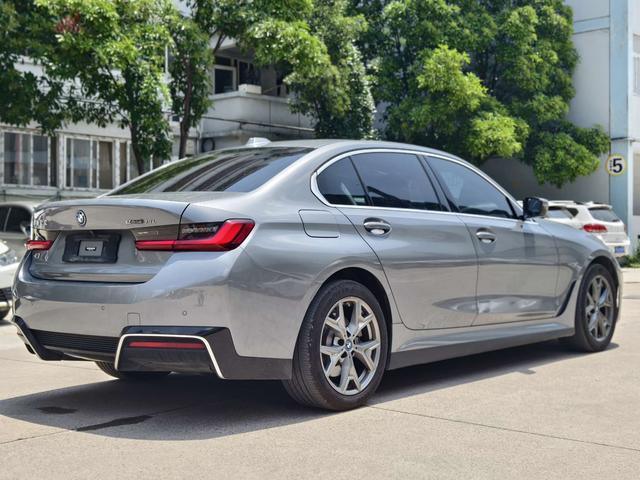Understanding the Revolution in Sustainable Transportation
The automotive industry is undergoing a remarkable transformation as new energy vehicles reshape our approach to transportation. These innovative vehicles represent more than just an alternative to traditional combustion engines – they symbolize a fundamental shift toward sustainable mobility. As environmental consciousness grows and technology advances, understanding what to consider before investing in a new energy vehicle becomes increasingly crucial.
Making the switch to a new energy vehicle involves careful consideration of various factors, from practical aspects like charging infrastructure to long-term financial implications. This comprehensive guide will help you navigate the key considerations and make an informed decision about your next vehicle purchase.
Types of New Energy Vehicles Available Today
Battery Electric Vehicles (BEVs)
Battery electric vehicles represent the purest form of electric mobility, running entirely on electricity stored in their battery packs. These vehicles offer zero direct emissions, lower operating costs, and impressive performance capabilities. Modern BEVs can achieve ranges between 200 to 400 miles on a single charge, with some premium models pushing beyond these limits.
The charging infrastructure for BEVs continues to expand rapidly, making them increasingly practical for daily use. However, potential buyers should consider their typical driving patterns and access to charging stations, as these factors significantly impact the ownership experience.
Plug-in Hybrid Electric Vehicles (PHEVs)
PHEVs offer a compelling middle ground for those not ready to go fully electric. These vehicles combine a conventional gasoline engine with an electric motor and battery, allowing for pure electric driving for shorter distances while maintaining the flexibility of a traditional vehicle for longer journeys.
The ability to charge from an external power source distinguishes PHEVs from regular hybrids, providing the option to complete daily commutes solely on electric power while having the backup of a gasoline engine for extended trips.

Essential Infrastructure Considerations
Home Charging Solutions
Installing a home charging station represents one of the most important decisions when transitioning to a new energy vehicle. Level 2 chargers, which operate on 240-volt circuits, can fully charge most vehicles overnight, making them ideal for home use. Consider the installation costs, electrical requirements, and potential need for upgrades to your home's electrical system.
Some regions offer incentives or rebates for home charging installation, making the transition more affordable. Working with a qualified electrician to assess your home's charging capabilities is essential before making your purchase.
Public Charging Network Access
The availability and reliability of public charging infrastructure vary significantly by region. Research the charging networks in your area, including their coverage, pricing models, and compatibility with different vehicle brands. Many new energy vehicles come with built-in navigation systems that can locate nearby charging stations, but it's worth understanding the charging network landscape before making your purchase.
Consider factors such as charging speeds, payment methods, and network reliability. Some charging networks offer membership programs that can provide cost savings for frequent users.
Financial Aspects and Incentives
Purchase Costs and Incentives
While new energy vehicles often have higher upfront costs than conventional vehicles, various incentives can help offset this difference. Federal, state, and local governments frequently offer tax credits, rebates, or other financial incentives for purchasing these vehicles. Research available programs in your area and understand how they might affect your total purchase cost.
Remember that incentives can change or expire, so timing your purchase accordingly might lead to significant savings. Some utilities also offer special rates or incentives for new energy vehicle owners.
Long-term Operating Costs
The total cost of ownership for a new energy vehicle often proves lower than traditional vehicles when considering fuel savings, reduced maintenance requirements, and potential insurance benefits. Calculate your expected electricity costs versus current fuel expenses, and factor in the typically lower maintenance needs of electric powertrains.
Consider also the potential impact on your vehicle's resale value, as the market for used new energy vehicles continues to evolve. Understanding these long-term financial implications helps make a more informed purchase decision.
Technical Specifications and Performance
Range and Efficiency Factors
Understanding real-world range capabilities is crucial when selecting a new energy vehicle. While manufacturers provide estimated ranges, actual performance can vary based on driving conditions, temperature, terrain, and driving style. Consider your daily driving needs and typical travel patterns when evaluating range requirements.
Pay attention to the vehicle's efficiency ratings and how they translate to real-world energy consumption. This information helps predict operating costs and determine whether the vehicle suits your lifestyle.
Battery Technology and Longevity
Battery technology continues to advance rapidly, improving capacity, charging speeds, and longevity. Research the battery warranty terms and expected lifespan of different models. Most manufacturers offer battery warranties ranging from 8 to 10 years, providing peace of mind regarding this crucial component.
Consider how battery degradation might affect range over time and what measures manufacturers take to protect battery health. Some vehicles offer sophisticated battery management systems that help maintain optimal performance throughout the battery's life.
Frequently Asked Questions
How long does it take to charge a new energy vehicle?
Charging times vary significantly depending on the vehicle's battery size and the charger type. Level 1 (120V) charging typically takes 20-40 hours for a full charge, Level 2 (240V) charging requires 4-10 hours, and DC fast charging can provide 80% charge in 30-60 minutes for compatible vehicles.
What happens if I run out of battery power while driving?
Modern new energy vehicles provide extensive warning systems and navigation tools to prevent running out of power. However, if it occurs, most manufacturers offer roadside assistance programs that can provide emergency charging or towing to the nearest charging station.
How does cold weather affect new energy vehicle performance?
Cold weather can temporarily reduce battery range and performance due to increased energy consumption for heating and battery conditioning. However, manufacturers implement various technologies to minimize these effects, and proper planning can help maintain reliable performance year-round.
Are new energy vehicles truly better for the environment?
While new energy vehicles produce zero direct emissions during operation, their overall environmental impact depends on factors like electricity source and manufacturing processes. However, studies consistently show that they generate lower lifetime emissions compared to conventional vehicles, especially as power grids become cleaner.

